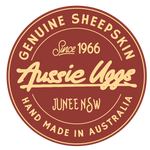The fashion industry, like many other industries, has had a negative impact on our planet. Unfortunately today with the amount of marketing "greenwashing" it's hard to really know if our purchases are in line with our ecological values. In this blog we aim to present information about the sustainability of grazing sheep and how if we take a closer look, sheep products can be part of the solution, not part of the problem.
Coal, oil and gas and not agriculture, are the major sources of greenhouse gas emissions that cause global warming. The United Nations Food and Agricultural Organisation (FAO) estimated the combined farm gate and land use emissions due to agriculture in 2018, was 17 percent of the total, down from 24 percent in the early 2000s.
Of the 17% of global greenhouse gas emissions caused by agriculture, cropping and intensive livestock are by far the biggest contributors. Extensive grazing of sheep accounts for very little.

Source: AWI (December 2021) “Mitigation of Green House Gases” Beyond the Bale
The Natural Carbon Cycle compared with One Way Fossil Fuel Emissions
The Australian sheep industry is almost entirely pasture based. So, the plants the sheep graze are carbon absorbing, that is they take carbon out of the atmosphere. The carbon sheep emit is mainly in the form of ‘biogenic’ methane, which breaks down into carbon dioxide and water in less than a decade. The water component returns to earth as rain and the carbon dioxide component is absorbed back by plants in a natural biological process known as photosynthesis. Therefore, it is a cycle, an entirely natural process, which has been occurring for millennia. Carbon emissions within a natural cycle, like those that result from grazing animals like sheep, are not a significant component of global warming. The one way release of carbon back into the atmosphere from fossilised deposits laid down millions of years ago, is the main culprit.

Australian Sheep Grazing Natural Pastures
In fact grazing animals may be part of the solution to global warming, so the products of grazing animals like sheep – such as wool and leather – are much better for the environment than synthetic fibres derived from oil, such as nylon, polyester, acrylic or polyurethane, which are used widely in the fashion industry today. The products of grazing animals are sustainable and generally eco-friendly. The products of fossil fuels are not.
As we said above, the pasture plants sheep eat absorb carbon from the atmosphere through photosynthesis – that is they are a carbon sink. This carbon is then deployed throughout the plant; to grow leaves, stems and roots. Sheep eat only a portion of the total bulk density of plants, mainly the leaves, so the carbon stored in roots, which are below ground, or in woody stems which sheep cannot eat, is locked up and not released back to the atmosphere. More than half of the plant cannot be eaten by sheep, so will store carbon for many years, until it is broken down by other natural biological processes. If farmers manage their pasture well, they can accumulate carbon in the soil, or in plants and trees, creating a carbon sink. This is a virtuous carbon cycle, helping to solve the global warming problem. A well managed pasture will accumulate carbon with each cycle.
The diagram below illustrates the two carbon cycles that apply to sheep.

Source: AWI Beyond the Bale
Ugg boots made from genuine sheepskin, like Aussie Uggs boots and slippers, follow the second cycle, the same cycle as for wool. After use wool and sheepskin biodegrade, so even if they do eventually end up in landfill, they will not cause significant environmental damage and will lock up sequestered carbon from the atmosphere for many years. On the other hand, polyurethane, the main component of cheap artificial leather shoes, which is made from fossil fuels such as oil, take 20-30 years to degrade. And like other plastics it can degrade into environmentally harmful components.
Australian Wool Innovation (AWI), an industry body focussed on helping growers to improve their productivity and sustainability, recently launched a campaign highlighting the environmental benefits of wool. The campaign was strongly endorsed by HRH the Prince of Wales, a strong advocate for the environmental benefits of wool.
As AWI explained;
“Against a background of misleading anti-wool lobbying currently orchestrated by the global giants of fast fashion, the Campaign for Wool has engaged with leading academic experts in the field of land management and carbon sequestration to demonstrate the positive contribution that wool and grazing sheep make to the continued well-being of the planet.”
Source: Campaign for Wool film explains WHY WOOL MATTERS. Beyond the Bale Issue 91 June 2022 p.38
Watch this 20 minute Campaign for Wool film, including the inaugural address by Prince Charles. For more information head to www.campaignforwool.org/why-wool-matters
